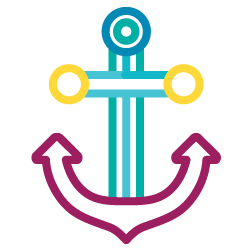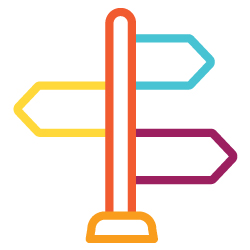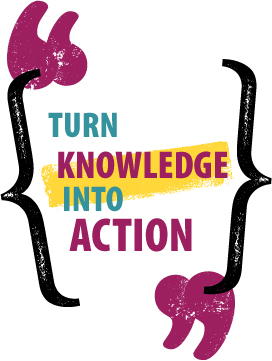Family Advocacy
Individuals with disabilities continue to be more integrated in their communities. This includes working in community-based jobs at competitive wages; living independently; and directing their own decisions. Businesses are seeing the benefits of hiring people with disabilities too. It takes the support and dreams of families, though, to help youth grow from children to active, engaged adults.
As youth approach adulthood, there are things families can do and actions to take that can greatly shape their child's future. Some of the decisions during this transition period can be hard. Families need access to information to make informed choices. Families also need information on what to advocate for on behalf of their child. Find tools and resources to assist families in becoming better advocates for their child and access training to learn more about these skills.
Practices | Strategies | Tools

Promising Practices
Following are some goals to strive for to improve advocacy skills for families. You can introduce the following resources to families or use them to supplement services and supports you provide.
Goals of Family Advocacy Training:
These are some of the outcomes used to measure the success of family advocacy training activities.
Families believe
work is possible for their child.
Family members and people close to the youth have high expectations
for the youth's future including work and independent living goals.
Families know the resources available
to help during the transition from childhood to adulthood.
Families can describe
their child's strengths and abilities in a positive way.
Families learn about solutions
to common barriers to having a job and which might be a good fit for their child.
Families identify steps
they can take now to support their child for life after high school and they begin to take action.

Strategies
The following strategies can be incorporated into your family advocacy training or in the supports and services you provide to families.

Communication and Engagement Strategies

Training Tips
These suggestions are based on lessons learned through Wisconsin Promise and other projects focused on working with youth and families.
Getting families together is a good thing---families support, empower, and teach one another. However, if families seem reluctant to attend group trainings, meet with them individually to provide the information and to support their current needs. Individual meetings may seem too time consuming, but often they are more effective at supporting the family and building relationships. As the relationship and trust develops, families will often be more interested in group events.
Tools
Following are some goals to strive for to improve advocacy skills for families. You can introduce the following resources to families or use them to supplement services and supports you provide.

Featured Training

Building Self-Advocacy and Self-Care Management Skills
Here’s a handy list of suggestions and insights for parents to build their youth’s self-advocacy skills at home, especially with respect to health care and management. There are several videos, too. From PACER’s National Parent Center on Transition and Employment. Get started

Youthhood’s Curriculum Guide
Youthhood.org’s purpose is to help young adults plan for life after high school. The site also offers information, links, and interactive activities for adults who work directly with youth to help youth plan for their futures. View Youthhood's Curriculum Guide
Related Topics
